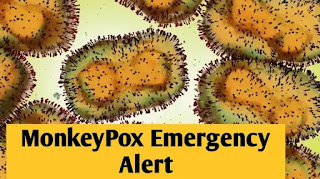The World Health Organization (WHO) has issued the strongest call to action it is able to in relation to the global monkeypox outbreak by declaring it as a public health emergency of international significance.
It follows a meeting of an expert committee on Thursday and marks the seventh such declaration since 2009. Before this there was COVID-19, And this also got the same title from WHO as COVID-19 was titled.
The WHO’s international health regulations define a public health emergency of international concern, or PHEIC, as “a remarkable event that is proven to represent a public health risk to other nations through the global spread of disease and to possibly require a collaborative global reaction.”
The word denotes that the situation is serious, sudden, uncommon, or unexpected, that it has ramifications for public health beyond national boundaries, and that it may demand prompt international response, according to the UN health agency.
The committee gathered on Thursday to analyse the most recent data, but, according to Dr. Tedros Adhanom Ghebreyesus, director general of the WHO, they are still unable to come to a decision. However, he has subsequently made the decision to declare a PHEIC in order to end the impasse.
 |
| Emergency Alert Declared By WHO Due To Monkeypox Spread |
He said, it has spread through unknown routes about we don’t have much idea. I have determined that the global monkeypox outbreak is a global health emergency of worldwide importance for all of the above reasons.a
Despite his claim that monkeypox risk was “moderate” worldwide, he noted that it was “high” in Europe and that there was “a significant risk of future international expansion.”
16,016 cases of monkeypox have been reported worldwide, 4,132 of which occurred in the previous week, according to WHO statistics. There have been five fatalities and it is currently present in 75 nations and territories.
At 11,865 total cases and 2,705 more cases in the past week, the European area had the most instances overall.
There is still a lot of work to be done, according to Dr. Rosamund Lewis, technical head for monkeypox in the WHO health crises programme.
In order for people to be able to defend themselves, she emphasized that steps must be taken to identify what generates risk and to lessen circumstances that could do so. This is how we’ll put an end to the outbreak, she declared.
In central and western Africa, the viral infection monkeypox was detected in animals. Occasionally, cases are found in nations where the virus is not prevalent, but the most recent outbreak is unprecedented.
The majority of cases have been reported in Europe, but there have also been cases in the US, Canada, Australia, Nigeria, Israel, Brazil, and Mexico, among other nations.
The WHO found that a substantial portion of the outbreak occurred among males who had intercourse with men who have recently reported having sex with new or numerous partners. The UN has warned that some media representations of Africans and LGBTQ+ persons “reinforce homophobic and racial stereotypes and exacerbate stigma.” Experts have however emphasised that anyone can contract monkeypox because it is transmitted by direct or intimate contact.
The executive director of the WHO’s emergency programme, Dr. Michael Ryan, stated: Due to stigma it’s always challenging to face such problems.
He continued, “If nothing else, this is about enlightened self-interest” and “solidarity” with people who were impacted.
Comments
Post a Comment